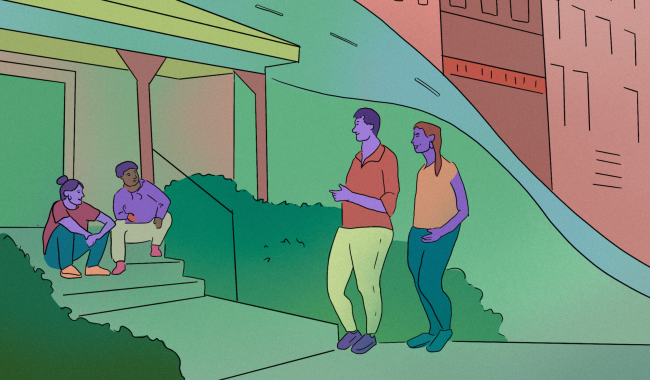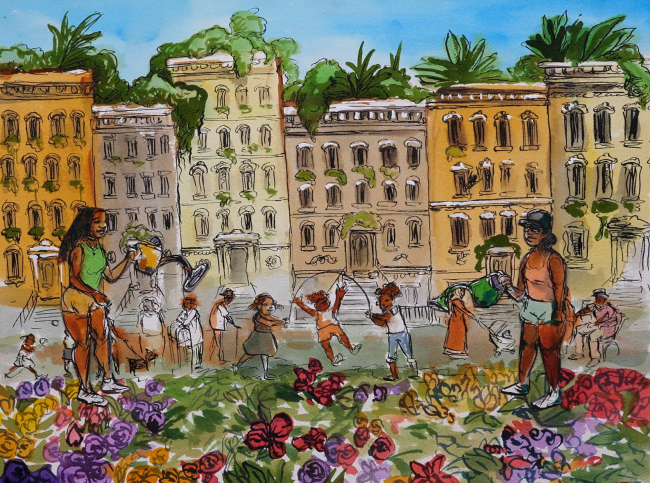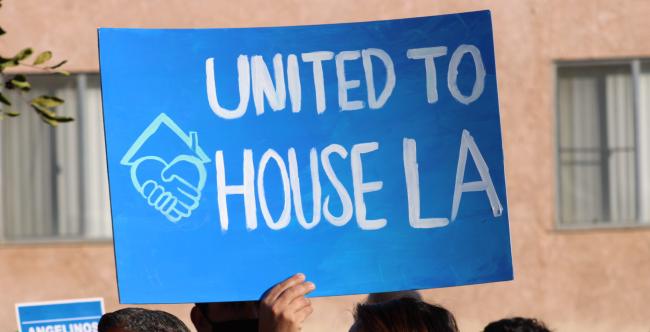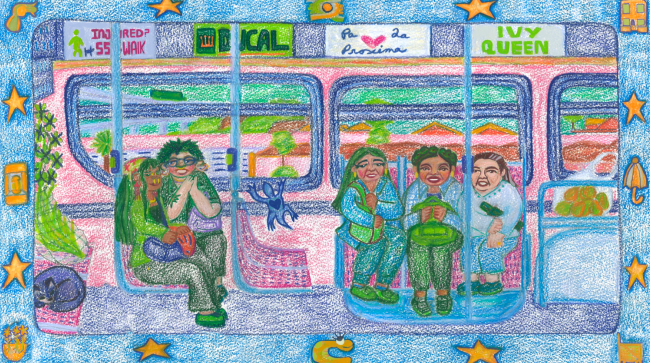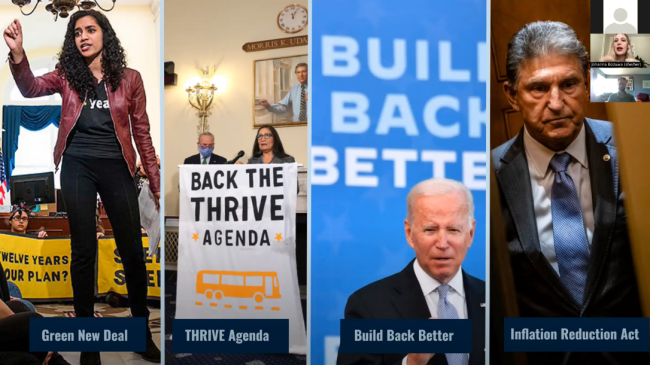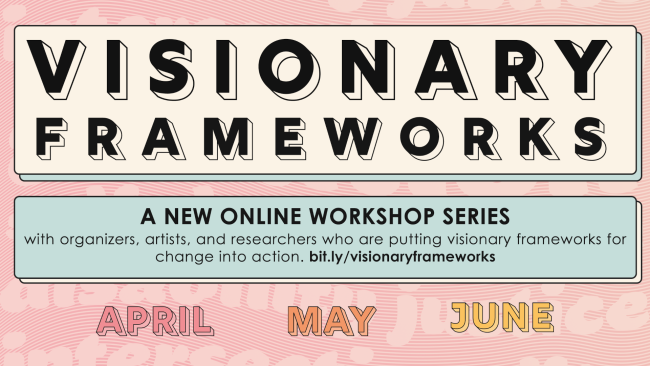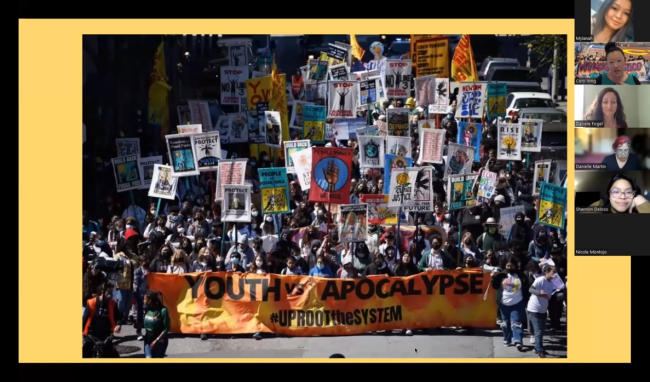Eli Moore is Director of the Community Power and Policy Partnerships Program (formerly the California Community Partnerships Program) at the Othering & Belonging Institute. Over the last twenty years, Eli has facilitated numerous participatory action research processes and published various reports and strategy papers that have been cited by local, national, and international media outlets and policy-making bodies. His research focuses broadly on urban planning and policy, political economy, race, and human geography. Eli draws on training and experience with geographic information systems, qualitative and mixed methods research, policy analysis, conflict mediation and negotiation, and popular education to facilitate participatory processes that allow those most affected by injustice to lead decision making and advance transformative change. Originally from the San Francisco Bay Area, Eli holds a Bachelors degree from University of California at Santa Cruz and dual master’s degrees in Geography and International Relations from the Syracuse University Maxwell School of Citizenship and Public Affairs.
Eli co-authored Ending Legal Bias Against Formerly Incarcerated People, which looks at strategies for establishing protected class status for people with past criminal convictions. This is part of long-time collaboration with the Safe Return Project, an organization Eli co-founded as a participatory action research project with the late Richard Boyd.
With partners in Richmond, California, Eli co-authored an analysis of gentrification and displacement that was the first analysis of these trends in the city. This research was used by community leaders in successfully urging the city council and then voters to adopt the first rent control and just cause for eviction policy in California in over 30 years. A subsequent report, Housing Policy and Belonging in Richmond, presented a comprehensive set of policies to advance housing equity and belonging. This was part of Staying Power, a participatory research and creative arts fellowship through which residents also developed original poetry, a know-your-housing-rights mural, and public events and workshops.
In the 2018 report, Opening the Door to Rent Control, Eli co-authored an in-depth analysis of housing affordability issues in California, available policies, and the need for rent control. Eli’s research on housing issues in the Bay Area region and statewide led to the publication of Unfair Shares, an analysis that revealed that areas with higher percentages of whites were setting lower goals for affordable housing.
Eli is part of the Blueprint for Belonging Project, through which he has co-developed original curriculum for community workshops on Belonging, Extractive Finance, Strategic Narrative, and other topics. He co-authored The California Story, an essay with Gerald Lenoir on the structural forces shaping economic and racial inequity in the state.
In 2017, Eli helped convene a group of community leaders in Richmond, California, with a shared interest in creating a new model for economic development designed around principles of community ownership, participatory governance, and a just transition. Through a participatory planning process, the collaborative designed and launched the Richmond Community-owned Development Enterprise, now an independent organization known as Richmond LAND.
When the University of California at Berkeley selected Richmond as the site for a major campus expansion, the Othering & Belonging Institute partnered with local community organizations, unions, and others to collaboratively research and develop a set of strategies for the new campus modeled on structural inclusion and equitable community benefits. This collaboration over a few years generated some lessons on effective community-based strategies for engaging anchor institutions, which are shared in these short videos.
Before joining the Othering & Belonging Institute, Eli was co-director of the Community Strategies for Sustainability and Justice Program at Pacific Institute in Oakland, California. There he led a team that published a national assessment of job creation possibilities related to water conservation, efficiency and quality improvements, Sustainable Water Jobs. He collaborated with the Community Water Center in Visalia, California, to design and carry out a survey of households affected by nitrate contaminated drinking water, and published Human Costs of Nitrate-contaminated Drinking Water. Eli also worked with several organizations in Richmond, California, to carry out a neighborhood level participatory research project on indicators of health and social equity, leading to the publication of Measuring What Matters.
Eli originally began learning about the power of research by volunteering with Amo Organics, a cooperative of migrant farmworkers in Salinas, California, who used oral histories of their lives to educate the public on the need for a community-supported equitable food system. Returning to his home in the Bay Area, Eli joined with parents and students resisting mass closures of public neighborhood schools, supporting their organizing with an analysis using Geographic Information Systems to quantify how much longer and unfeasible their commutes to school would be if the closures were implemented. These early experiences of the transformative potential of research done by and for people pursuing justice continue to inspire Eli’s work.
